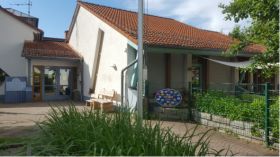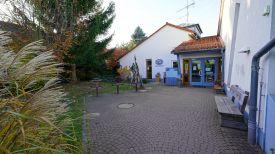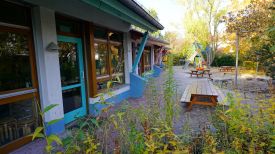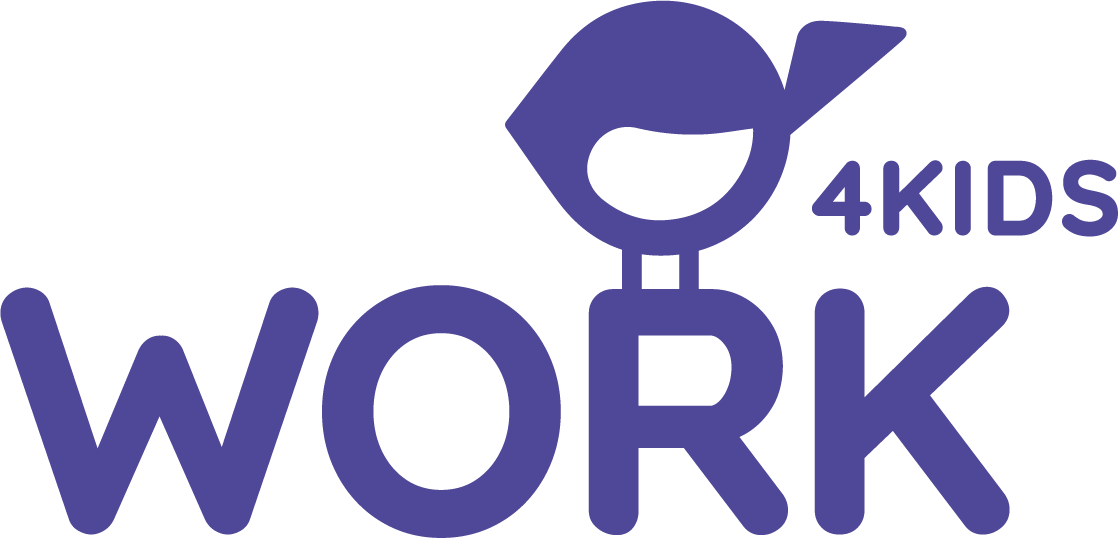Basics
Settling in: We give your child time to arrive!
Settling in is very important for a good start in the kindergarten life of your child. During the settling-in period, your child learns to get used to the new environment and to establish new relationships with the caregivers and the other children. The goal of settling in is that the relationship between the child and the caregivers is solidified so that the child can remain in the facility without a parent and the caregivers can comfort and reassure your child. Your child receives the security that he or she would otherwise receive from a parent, now from the educator.
It is very important to us that we accompany you as a parent and your child individually during this phase. Settling in is always dependent on each child individually and never proceeds in the same way. Therefore, it is important for us educators to be in close contact with you. In order to know your fears and concerns and to be able to support you properly, please let us know.
At Villa Konfetti, we use the Berlin Model to acclimate your child. A brief explanation: the Berlin Model divides the settling in process into 6 steps. These are 1. timely information to the parents, 2. the three-day basic phase, 3. the first separation attempts, 4. the stabilization phase, 5. the final phase and 6. the follow-up of the acclimation.
Educational partnership: together for strong children
Good cooperation between parents and the daycare center is one of the foundations of high-quality educational work. Parents are our most important cooperation partners. For a good cooperation we need mutual trust, acceptance, tolerance and appreciation. This can only come about through constant exchange. Door-to-door conversations often arise during drop-off and pick-up situations. During such conversations, parents gain an up-to-date insight into the day-to-day life at the daycare center and educators* receive information about incidents at home. In this way, mutual trust grows and cooperation can develop for the benefit of the child.
In addition to the door-to-door meetings, development meetings are held once a year. In such development meetings, the child's developmental status, observations in everyday life and current topics are discussed.
Parents' evenings are another opportunity to exchange information and organizational matters. In our facility, these take place two? times per kindergarten year.
They serve not only as an opportunity for exchange between educators and parents, but also for parents to meet each other.
We provide daily information about activities on "bulletin boards" at the respective group doors. In this way, parents regularly get a glimpse of what the children have been up to during group time. Only through a constant exchange of information can we work together to ensure the well-being of the children.
Pedagogical focus: We make the most of every situation!
The pedagogical focus is based on the developmental areas of the children. Each child has different resources and therefore a different level of development in the different areas. We see it as our task to give each child the opportunity to develop his or her talents and to support them within the scope of their possibilities if they have deficits
Independence and self-confidence
... are very important to us. We support the children whenever they need it, but also give them the freedom to use their abilities. Whether it's leading the assembly and speaking freely in front of a group or everyday things like getting dressed, there are opportunities everywhere to promote independence and encourage the child to find their own solutions.
Only a person who knows how to help himself can be self-confident.
Resilience
... means psychological resilience. The development of resilience is especially important to make children strong against stress, exceptional situations and burdens.
Some people are born with resilience, but everyone can "train" it. In our daycare center, this happens in small everyday situations, e.g. the child is supported in coping with stressful situations or in losing a game without frustration or in letting another child take over in a role play.
Resilience is a core skill for school-age children and is more important than most other areas of development.
Social-emotional development
Social interaction is a basic need of every human being. Everyone has something to contribute to the success of a community. Team spirit, consideration, but also assertiveness, listening, but also being able to express oneself, the internalization and implementation of values and rules - all this and much more is part of good cooperation. Children learn much of this in the day-to-day life of a daycare center, "learning by doing," as it were.
In this area of development in particular, many things have changed in recent years. Values and rules often no longer seem clear, children are also exposed to greater emotional stress than in the past, and aggression occurs much more frequently. For this reason, the team at Villa Konfetti has completed advanced training in the "Faustlos" prevention program. The term "Faustlos" symbolizes a non-violent approach to conflicts and emotionally difficult situations. The goal of the program is not only to refrain from physical violence, but also to deal with each other fairly on a verbal level.
Language
... is the key to the world . A well-developed language is important for communication, social contacts and success in education and work. We promote the language on different levels, such as reading aloud, story rounds, singing and rhyming, finger plays and much more.
Currently we have children and caregivers from many different nations and speak ten different languages in the house. Interest and acceptance for different languages and cultures are therefore a basis for our pedagogy.
First of all, the mother tongue should be well consolidated. At the latest in the daycare center, the second language German is added, which is of course important in order to move safely in our society.
For children who still have development potential in the area of language, we offer language support once a week, apart from the preschool children who take part in the pre-school course.
At the age of four to four and a half, a certified specialist conducts a language screening initiated by the state of Hesse in order to better assess and, if necessary, promote language development and communication behavior. Of course, the written consent of the parent or guardian is obtained beforehand.
Creativity
... has many facets. Children can develop their creativity in many different ways: Painting, handicrafts, singing, dancing, role-playing and much more are part of our daily pedagogical routine. What is relevant here is not perfection, but the individuality of each child and the joy of creating something oneself. We see creativity as a form of expression for each child's feelings, thoughts, inventiveness, personality and imagination.
"Children's creative works should not be judged by beautiful or not beautiful, but should be seen as an individual expression of the child in question." (author unknown)
Music
... is the language of the soul. Apart from the fact that singing, rhythmics and the handling of instruments brings joy to every child, music also promotes many areas of development, e.g. language development, mathematical thinking, memory etc.
At Villa Konfetti, we sing songs during group time that fit our particular theme and, of course, movement songs.
Once a week, all children sing together, either in the gym or outside, depending on the season. We sing traditional songs as well as new songs.
Once a week, a rhythm and song lesson is scheduled for particularly interested children, in which Orff instruments are used, among other things.
Gross and fine motor skills
Fine motor skills refer to processes such as hand-finger coordination, facial and oral motor skills, and are promoted through kneading, handicrafts, finger games, etc.
Gross motor skills deal with the overall movements of the human body. (Movement -> see "Healthy Kita")
Perception
... is the experience of the environment and oneself with all the senses. The senses are the window to the world and must be allowed to develop. Villa Konfetti offers a stimulating environment for all senses.
Especially our Snoezel room on the upper floor invites you to see, hear, dream, feel and smell.
Logical-mathematical thinking
... sounds much more complicated than it is. We organize our everyday life in such a way that the ability to think logically and mathematical basics are developed quasi incidentally. Dice games, riddles, rhythm, counting and sorting games provide a stimulating offer, with which each child with joy and interest his access to the world.






